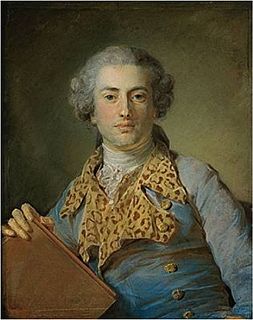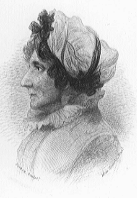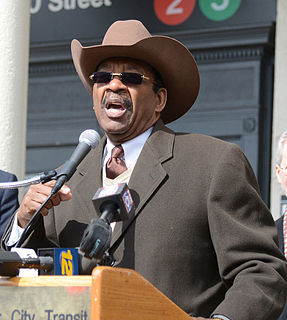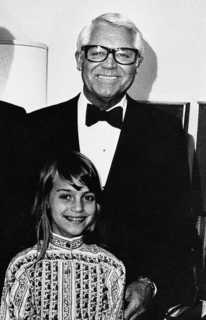A Quote by John Locke
A father would do well, as his son grows up, and is capable of it, to talk familiarly with him; nay, ask his advice, and consult with him about those things wherein he has any knowledge or understanding. By this, the father will gain two things, both of great moment. The sooner you treat him as a man, the sooner he will begin to be one; and if you admit him into serious discourses sometimes with you, you will insensibly raise his mind above the usual amusements of youth, and those trifling occupations which it is commonly wasted in.
Related Quotes
The natural inclination of man is to rely solely upon himself and to ignore the purpose of his existence as well as his relationship to God who is his spiritual father. If man will recognize his divine origin, he will then realize his Heavenly Father will not leave him alone to grope in darkness of mind and spirit, but will make available a power to influence him in right paths and into standards of good behavior. The Holy Ghost is that power.
Why prove to a man he is wrong? Is that going to make him like you? Why not let him save face? He didn't ask for your opinion. He didn't want it. Why argue with him? You can't win an argument, because if you lose, you lose it; and if you win it, you lose it. Why? You will feel fine. But what about him? You have made him feel inferior, you hurt his pride, insult his intelligence, his judgment, and his self-respect, and he'll resent your triumph. That will make him strike back, but it will never make him want to change his mind. A man convinced against his will is of the same opinion still.
Don't drop him," said Peter's mother to his father. "Don't you dare drop him." She was laughing. "I will not," said his father. "I could not." For he is Peter Augustus Duchene, and he will always return to me. Again and again, Peter's father threw him up in the air. Again and again, Peter felt himself suspended in nothingness for a moment, just a moment, and then he was pulled back, returned to the sweetness of the earth and the warmth of his father's waiting arms. "See?" said his father to his mother. "Do you see how he always comes back to me?
And he arose and came to his father. But while he was still a long way off, his father saw him and felt compassion, and ran and embraced him and kissed him. And the son said to him, 'Father, I have sinned against heaven and before you. I am no longer worthy to be called your son. But the father said to his servants, 'Bring quickly the best robe, and put it on him, and put a ring on his hand, and shoes on his feet. And bring the fattened calf and kill it, and cet us eat and celebrate. For this my son was dead, and is alive again; he was lost, and is found.' And they began to celebrate.
The boy will remain a son and never become a father. He will be forgotten by the crowd once his blood is rinsed clean from the ground; his sister will think of him but soon she will forget him, too. He will live on only in Han's memory, a child punished not for his own insincerity but someone else's disbelief.
I will make an average man into an average dancer, provided he be passably well made. I will teach him how to move his arms and legs, to turn his head. I will give him steadiness, brilliancy and speed; but I cannot endow him with that fire and intelligence, those graces and that expression of feeling which is the soul of true pantomime.
You cannot show real respect to your parents by perpetuating their errors.... Do you consider that the inventor of a steel plow cast a slur upon his father who scratched the ground with a wooden one? I do not consider that an invention by the son is a slander upon the father; I regard each invention simply as an improvement; and every father should be exceedingly proud of an ingenious son. If Mr. Talmage has a son, it will be impossible for him to honor his father except by differing with him.
No one should fear to undertake any task in the name of our Saviour, if it is just and if the intention is purely for His holy service. The working out of all things has been assigned to each person by our Lord, but it all happens according to His sovereign will, even though He gives advice. He lacks nothing that is in the power of men to give Him. Oh, what a gracious Lord, who desires that people should perform for Him those things for which He holds Himself responsible! Day and night, moment by moment, everyone should express their most devoted gratitude to Him.
Let a man choose what condition he will, and let him accumulate around him all the goods and gratifications seemingly calculated to make him happy in it; if that man is left at any time without occupation or amusement, and reflects on what he is, the meagre, languid felicity of his present lot will not bear him up. He will turn necessarily to gloomy anticipations of the future; and unless his occupation calls him out of himself, he is inevitably wretched.
A good father. A man with a head, a heart, and a soul. A man capable of listening, of leading and respecting a child, and not of drowning his own defects in him. Someone whom a child will not only love because he's his father, but will also admire for the person he is. Someone he would want to grow up to resemble.
When the father dies, he writes, the son becomes his own father and his own son. He looks at is son and sees himself in the face of the boy. He imagines what the boy sees when he looks at him and finds himself becoming his own father. Inexplicably, he is moved by this. It is not just the sight of the boy that moves him, not even the thought of standing inside his father, but what he sees in the boy of his own vanished past. It is a nostalgia for his own life that he feels, perhaps, a memory of his own boyhood as a son to his father.
You, that have toiled during youth, to set your son upon higher ground, and to enable him to begin where you left off, do not expect that son to be what you were, - diligent, modest, active, simple in his tastes, fertile in resources. You have put him under quite a different master. Poverty educated you; wealth will educate him. You cannot suppose the result will be the same.








































